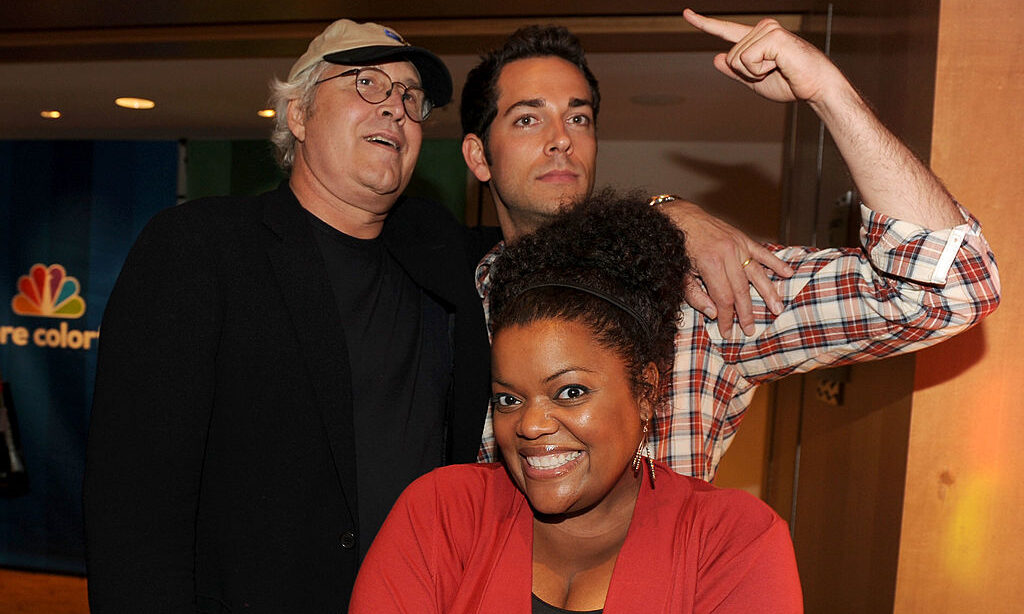When Jatee Kearsley spent four months eating her way through Paris in 2021, she had no idea just how far her life adventures would take her.
Though she and a friend visited the city with the express purpose of understanding the history of French pastries and the processes by which they’re crafted, she couldn’t have known that, two years later, she’d have her own patisserie. And she couldn’t have imagined that, nine months after she opened, she’d go viral, and people would be calling from across the country—and the world—trying to get their hands on some of her baked goods.
Je T’aime Pâtisserie, in Brooklyn’s Bed-Stuy neighborhood, opened in the summer of 2023 with little fanfare. In the early days, business was slow, and Kearsley remembers selling around 12 croissants a day, six chocolate and six plain.
“No one knew about us,” she says. But then the popular social media channel, Righteous Eats, got wind of what Kearsley was doing and, in April 2024, featured her in a video that went viral. The next day, “those six chocolate croissants were gone in like five minutes.”
The perils of popularity
After that, croissants and everything else were flying off the shelves, and the self-taught baker could barely keep up with the demand.
“I did already have a staff, but my friends and family rushed in to help me,” she recalls. “I was also sleeping at the bakery … I slept there for two weeks straight just to try to keep up with all the things that we needed … I don’t think people understand what a small business goes through when they go viral.”
She points out that many small business owners buckle under the strain instant recognition can bring. It’s especially difficult when you’re crafting things from scratch, such as croissants, which take Kearsley three days to make from start to finish.
”I think, at the time, I was probably making in total… like, 100 croissants for the week,” she says. “And now I’m making like 500 [to] 600…. If you’re not prepared to go viral, it could literally make your business fail. And I was not prepared. I just had a lot of friends who came and helped me out in my time of need.”
Pastry with a purpose
While Kearsley loves that her business is getting noticed, what makes her the happiest is the reason customers want to support her. She creates pastry with a purpose. Her mission is to fight systemic food discrimination in communities without access to good quality food, often known as food deserts.
One of the ways she does this is by accepting EBT (the government’s electronic benefit transfer or food assistance card), though many people told her it wouldn’t be a good idea. But as someone who believes the saying “If you don’t help at least one person in your life, you’re wasting your life,” she wouldn’t run her business any other way.
“Even before I was going viral, people were like, ‘Why are you in this neighborhood? Like, this food is too fancy for this neighborhood.’ And I’m just like, ‘But it’s not, though. It’s really, really not. Like, these are the foods that you normally eat. They just look fancy. Because I want you, the people of this community, to be able to experience food at a different level.’”
As a result of her choices, she has welcomed people into her shop who never tasted a croissant before. She remembers a group of teenage boys who had never seen quiche before, but she reminded them they’ve had versions of a quiche their whole lives.
“Quiche is just eggs and vegetables,” she told them. “You ate an omelet 30,000 times. You ate scrambled egg. Like, you know, it’s just the way that you plate it and the way that you present it to people that makes it [seem] ‘weird,’ or too fancy, but it’s not. So when you… add food education to the ethos of my business, that’s super important too, to educate my people.
“I think people get that misconstrued a lot when I say my people, because they just think I’m speaking of Black people,” she continues. “But I’m speaking of all, you know, marginalized communities and [people in] food desert areas.”
That includes those boys, who walked away with some free quiche samples and are now regulars.
“I actually hired one of them during the summertime,” she says. “I think that with me having this relationship with the community on a personal level… it gets them coming back because they know someone actually cares…. I actually care about seeing my community of people grow and learn more about food and the things that they need to… sustain their everyday being.”
It takes a village
She’s quick to point out, however, that she can’t do this important work alone.
“It has to be a whole community who wants to see a change, who wants to see more … food options, more healthy options, more cafes, more salad bars, more small businesses that offer fresher products like smoothies or salads, or fresh [baked goods] like mine” she says. “These croissants are not sitting in a factory. They’re not sitting on a truck. They’re not sitting on the shelves for many, many days … I’m there at 4:00 a.m. so I’m there witnessing the beauty of baking these things fresh every day.”
Her mission isn’t going unnoticed. Kearsley says once she went viral, people were asking if they could donate money to pay for someone else’s pastries. So, she set up a GoFundMe, which raised $7,500. She partnered with Righteous Eats to create a community day. All the donated money went to other food businesses in her community, and they gave away ice cream, burgers, juice and pastries for free.
“I’m just someone that God is using to propel the mission that he has me on,” she says. “Of course I have to make money because I’m a business, but my passion is to really, really uplift and educate and help my communities of all ages [and] all races.”
Photo by Hryshchyshen Harbucks/Shutterstock





